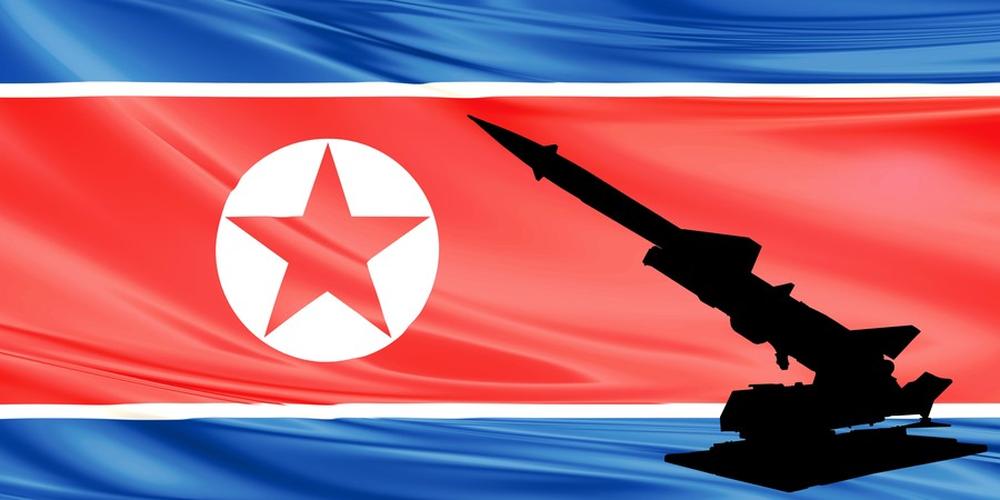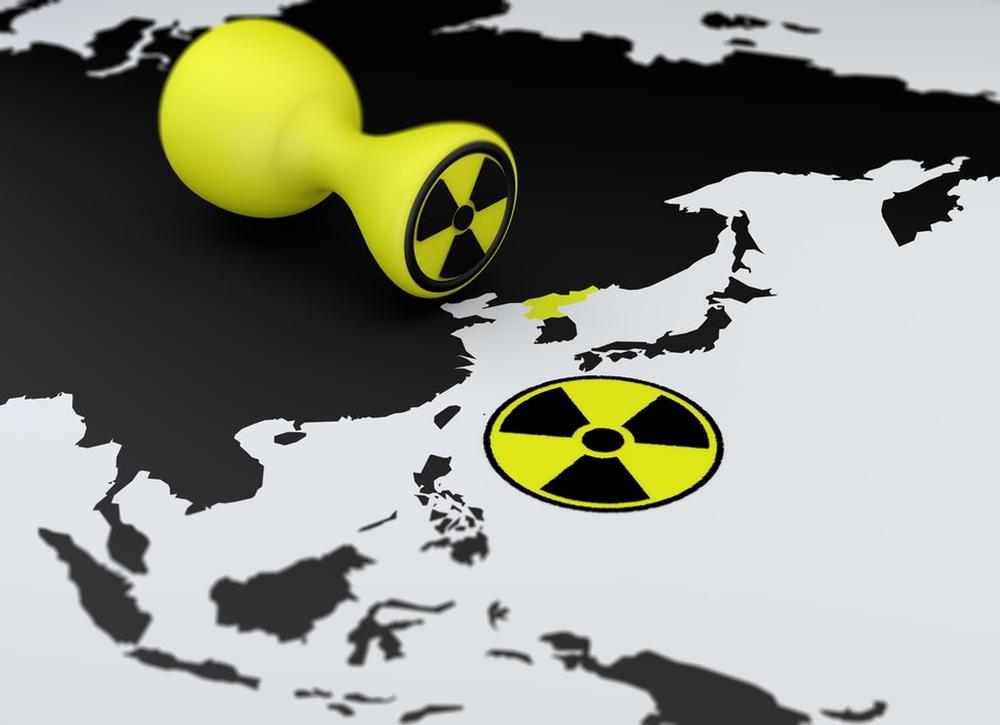- #Inter-Korean Relations
- #North Korea
- #Nuclear & Missile Issues
- #US Foreign Policy

► North Korea has likely restarted its Yongbyon facility to raise diplomatic stakes for future negotiations with the U.S. and convince the global community of its relevance as a nuclear power.
► Despite the Biden administration refusing to provide incentives to North Korea for its returning to negotiations, recent discussions of humanitarian assistance may suggest hopeful progress.
Circumstances Surrounding the Restarting of North Korea’s Yongbyon Nuclear Facility
The international community has grown increasingly concerned about recent signs that North Korea has restarted its Yongbyon nuclear facility. If proven true, this implies that North Korea has restarted its nuclear facility after two years of suspension and has gone against any progress made in the Korean Peninsula Peace Process. Moreover, it shows North Korea’s strong will to further enhance its nuclear capabilities. The intentions behind North Korea’s decision and the potential impact it could have on future US-DPRK negotiations are garnering much attention.
Last month, IAEA published an annual report on North Korea’s nuclear activities. The report included details about North Korea restarting its Yongbyon nuclear facility. Specifically, the report said that there have been numerous signs, including discharge of cooling water, to suggest that North Korea has indeed restarted the nuclear facility. This opens the possibility that North Korea may have extracted plutonium in order to increase the stock of its nuclear materials. IAEA also added that Yongbyon’s radiochemical laboratory had been operational for five months earlier this year, suggesting that North Korea may have also extracted plutonium from spent fuel rods. In response, IAEA said that this is a clear violation of UNSC resolutions and that it is “deeply troubled” by this turn of events.
IAEA’s claims have been supported by 38North’s satellite images. Based on images taken on Aug. 25, 38North analyzed that North Korea had discharged cooling water through a new outflow channel. Since a large amount of cooling water is needed to cool down spent fuel rods released from the nuclear reactor, these movements suggest that North Korea has begun to extract additional plutonium.
North Korea’s Intentions Behind Restarting the Yongbyon Nuclear Facility
There are multiple speculations as to why North Korea has restarted its nuclear facility despite the Biden administration’s willingness to engage in dialogue without any preconditions and the recent exchange of letters between the Korean leaders. First, the most likely reason is that North Korea is increasing the diplomatic price of Yongbyon as it prepares for the resumption of US-DPRK negotiations. During the Hanoi summit meeting in February 2019, North Korea had asked the United States for sanctions relief in exchange for the suspension of the Yongbyon nuclear facility. The United States rejected this proposal, saying that Yongbyon was not enough, and demanded other uranium enrichment facilities located throughout the North. The negotiations concluded without the two sides narrowing the gap and the diplomatic deadlock continues to this day.
If US-DPRK negotiations resume in the near future, the point of contention will revolve around the suspension of the Yongbyon nuclear facility. During the ROK-US summit in May, the two leaders agreed to continue diplomacy and dialogue based on previous inter-Korean agreements, such as the 2018 Panmunjeom Declaration, and US-DPRK agreements, including the Singapore Joint Declaration. For a speedy start to the negotiation process and to confirm mutual trust, it is likely that the United States and North Korea will first discuss the suspension of Yongbyon and its corresponding measures—an issue which the sides have had lengthy negotiations in the past even though they failed to reach an agreement.
North Korea’s recent decision to restart Yongbyon appears to have this situation in mind. In other words, this is a way for North Korea to increase the diplomatic cost of Yongbyon which will likely serve as the starting point of negotiations with the United States. By restarting Yongbyon, North Korea is showing that its nuclear production capability remains intact and by increasing the stock of its nuclear materials, it is reminding the United States that Yongbyon is by no means cheap.
Another convincing interpretation is that the restart of Yongbyon is North Korea’s way of convincing the United States that Yongbyon remains a valid bargaining chip and also reminding the U.S. of its presence. This makes sense given that North Korea’s nuclear program remains outside of the Biden administration’s foreign policy priorities at this moment. Domestically, the U.S. is urgently dealing with COVID-19, economic recovery, and social integration. In terms of foreign policy, countering the rise of China, dealing with the withdrawal from Afghanistan, and reviving the Iran Nuclear Deal remain high as U.S. priorities. Therefore, the restarting of Yongbyon can serve as a catalyst that reminds the Biden administration of North Korea’s presence without crossing the red line. This can also pressure the United States to be more active diplomatically, especially useful if the Biden administration becomes content with simply managing the North Korean nuclear problem. The restarting of Yongbyon reveals the North’s willingness to improve its nuclear force—a development which the United States cannot ignore due to its implications for U.S. security.
Impact on Future US-DPRK Negotiations
Since the breakdown of the US-DPRK summit in Hanoi in February 2019, North Korea has expressed its unwillingness to return to negotiations if the United States does not withdraw hostile policies. On the other hand, the United States—with phased reduction of North Korea’s nuclear capabilities and eventual denuclearization as its objectives—has expressed its willingness to engage in negotiations without preconditions. It appears that North Korea’s recent restarting of Yongbyon has not changed the Biden administration’s diplomatic principles. However, it was successful in reminding the United States that North Korea is an important foreign policy objective.
In response to restarting of Yongbyon, the Republic of Korea and the United States have stressed the urgency in dealing with North Korea. White House Press Secretary Jen Psaki acknowledged the IAEA’s report and emphasized the urgency of dialogue to achieve complete denuclearization of the Korean Peninsula. She also revealed that Korea and the United States are discussing the possibility of providing humanitarian assistance as a way to resume dialogue with the North. The Blue House echoed similar sentiments by saying that dealing with North Korea is an urgent matter, especially given its growing nuclear threat, and that Korea and the U.S. are actively searching for ways to engage with North Korea.
It remains unclear how Korea and the United States will lure North Korea back to the negotiating table, and how the North will respond to such efforts. The Biden administration has revealed that it has no intention of providing incentives to North Korea. However, the public announcement that Korea and the United States are discussing humanitarian assistance seems to suggest that the two allies are making progress in terms of coming up with a blueprint to entice North Korea back to negotiations. It also suggests the possibility that North Korea will positively accept ROK-US humanitarian assistance in the form of COVID-19 vaccines and food. I hope that such incentives, along with practical suggestions for a denuclearization process, will re-start the clock for achieving denuclearization on the Korean Peninsula.
Dr. Hanbeom Jeong is currently Professor at the Korea National Defense University. He also served as policy advisor at the Office of National Security and Department of National Unification, and permanent advisor at the National Peaceful Unification Advisory Council. Dr. Jeong is also a member of the Nomination Committee of the Democratic Party of Korea and the Educational Center for National Unification. He received his Ph.D in Political Science from the University of Kentucky.


